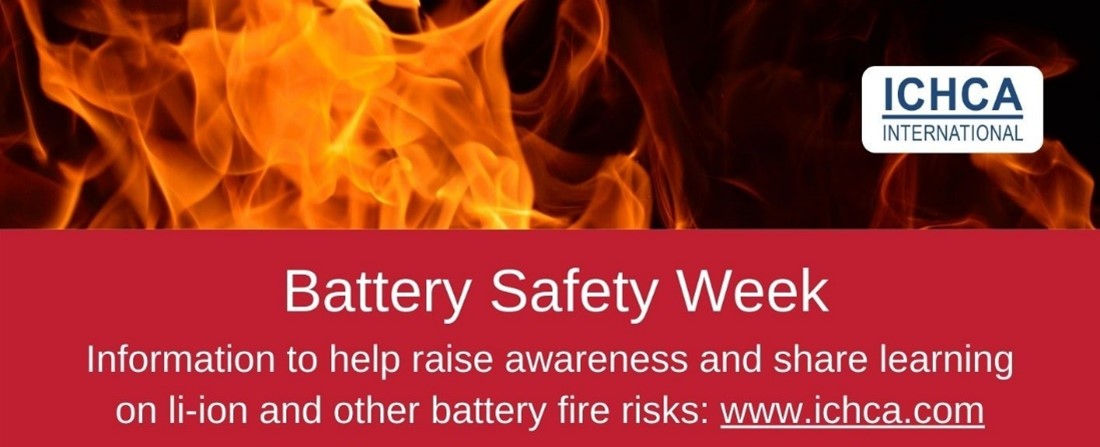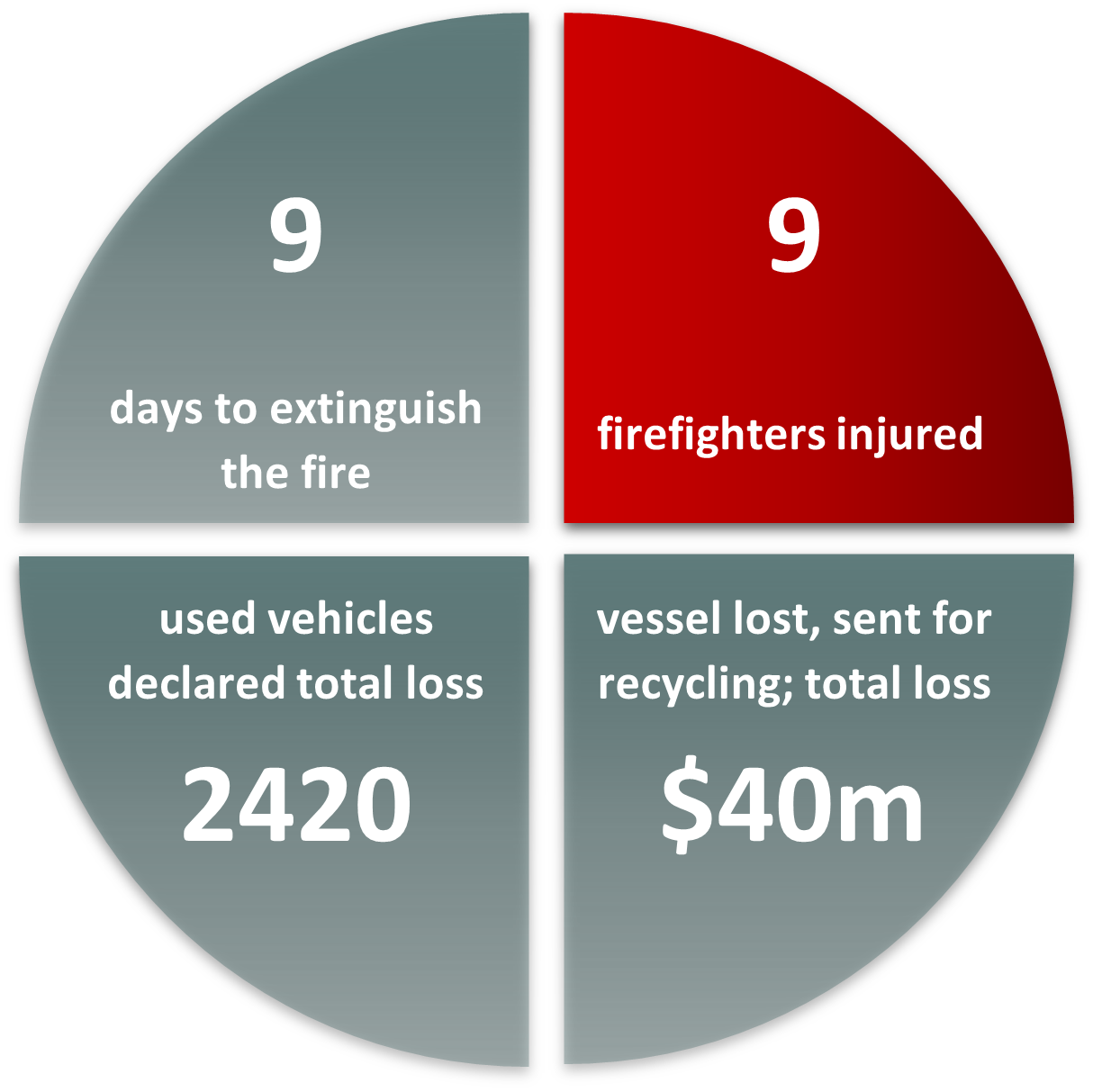Battery Safety Week – Day 4: Failure to Properly Disconnect and Secure Vehicle Batteries Led to Fire Aboard Vehicle Carrier Höegh Xiamen
Day 4 of our battery fire safety week and today it is a case study published by the US National Transportation Safety Board. The report itself provides a considerable amount of detail on the fire aboard the roll-on/roll-off cargo vessel Höegh Xiamen.
Nine shoreside firefighters heroically responding to the accident were injured during firefighting action on the first day. Fortunately, none of the vessel’s 21 crewmembers were injured. The vessel and its cargo of 2,420 used vehicles were declared a total loss valued at $40 million, and the vessel was later towed to Turkey for recycling.
NTSB noted that the transportation of used vehicles, such as those loaded on Höegh Xiamen, is excepted from Hazardous Materials Regulations because the vessel had a stowage area specifically designed and approved for carrying vehicles. Investigators found that used vehicles are often damaged and present an elevated risk of fire. NTSB concluded that greater inspection, oversight, and enforcement are needed to reduce this risk.
Probable Cause
NTSB determined that the probable cause of the fire was an electrical fault from an improperly disconnected battery in a used vehicle on a cargo deck. This happened because “vehicle battery securement procedures were not being followed”.
Contributing Factors
Detection of the fire was delayed because it was standard practice to deactivate fire detection systems during loading and the operating company did not have procedures to minimize the amount of time that vessel fire detection systems remained deactivated after loading evolutions. Therefore, the vessel’s fire detection system was not immediately re-activated after the completion of loading.
Extinguishing system activation. The master’s decision to delay the release of the carbon dioxide fixed fire-extinguishing system contributed to the extent of the fire.
Raising the alarm. Shoreside emergency service response was delayed because the ship’s master did not know the process for contacting them/raising the alarm.
Recommendations
NTSB made recommendations to:
- the companies involved to improve oversight of vehicle loading as well as training of personnel involved in battery securement for used and damaged vehicles
- federal agencies to improve regulations for vehicle carriers that transport used vehicles
- the vessel operator to revise their procedures involving the deactivation of fire detection systems and to ensure emergency contact information is immediately available for bridge teams.
The full report is available from: https://www.ntsb.gov/investigations/Pages/DCA20FM020.aspx
We are listening…
We are keen to hear from you about your experience and perspectives on this topic. Do you have comments on the material that we have shared? Do you have links to guidance that might help others in the industry to continually improve management of this risk.
Please send any comments, ideas, links or questions to secretariat@ichca.com
Video recordings
The video recordings of our Li-Ion webinar are still available on our web site on the following links:
Captain Randall Lund, Senior Marine Risk Consultant at Allianz Risk Consulting
Lithium-Ion batteries – fire risks and loss prevention measures in shipping
Cdt. Dirk Van de Velde, CO Health Safety, Security & Environment, Mediterranean Shipping Company
Carrying and handling electric vehicles – managing operational risk
Thomas Jahren, Distribution Manager (Europe & Asia), Bridgehill AS
Be better prepared for electric vehicle fires
We are grateful to all of the organisations mentioned in this release who have demonstrated health and safety thought leadership by researching and releasing material intended for the benefit of the industry and its people. References to external links, documents and web sites remain with the copywrite owners.
ICHCA International is not responsible for, and cannot guarantee the accuracy of, information on sites that it does not manage; nor should the inclusion of a hyperlink be taken to mean endorsement by ICHCA International of the site to which it points.


